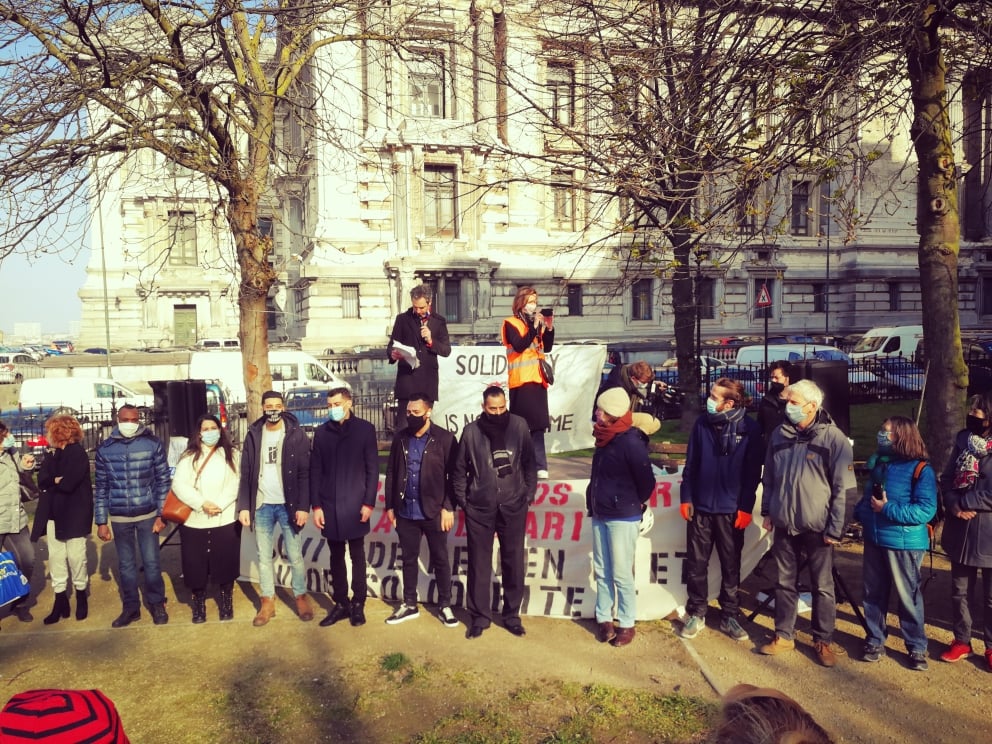November 2018, a courtroom in Brussels. The defendants: eleven people, most with a migration background. Their crime: solidarity. The verdict: guilty.
Since 2017, a trial has been ongoing in Belgium against eleven people accused of human trafficking and participation in a criminal organisation. Among the accused are journalists and social workers who opened their homes to refugees in search of a safe life or helped them with information. Nine of the eleven defendants had to spend between two and thirteen months in pre-trial detention before they were sentenced at first instance. In the first instance, four people were acquitted, but seven were sentenced to prison terms of up to four years. In the appeal verdict of May this year, the prison sentences of those convicted were reduced to one to two years.
The unlawful criminalisation of refugees and all those who show solidarity with them has been systematic in the European Union for years. In this way, people are prevented from engaging in activism and standing up for the fundamental rights of refugees for fear of personal repression. Civil society solidarity alliances that stand in solidarity with refugees, as in the case described above, are to be deterred from campaigning for safe and legal escape routes by the high costs and time involved in legal proceedings and the draconian threat of punishment.
In order not to abandon these eleven and all the other people affected by unlawful criminalisation, the Sea-Watch Legal Aid Fund was founded in 2018. Unlike the non-profit association Sea-Watch, the Legal Aid Fund is allowed to finance criminal proceedings.
In the beginning, the fund was primarily designed to support sea rescuers who were targeted by the authorities for their work in the Mediterranean, such as in the case of Carola Rackete. Since then, the Legal Aid Fund has broadened its focus and now supports a wide range of projects that together convey a simple message: Solidarity is not a crime – be it on land or at sea!
The last five years have seen numerous unfounded administrative and criminal cases against refugees and their supporters. Even though they rarely resulted in a conviction, those affected had to go through lengthy and costly trials. Together, the Legal Aid Fund aims to support those affected and relieve them of the financial burden associated with legal proceedings.
You can find out more about the Legal Aid Fund and how you can support its irreplaceable work at https://swla.eu/en/












